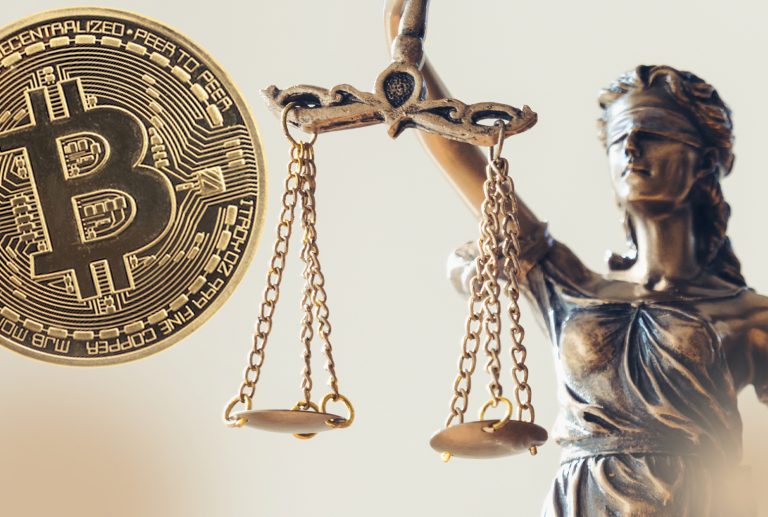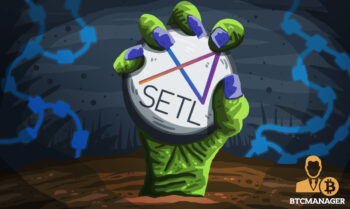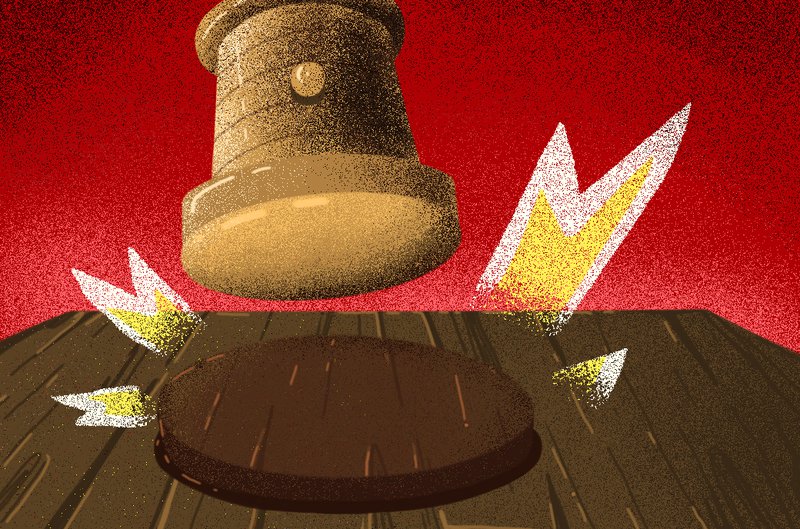
2022-7-13 15:00 |
For Americans cut off from basic financial rights because of their incarcerations, bitcoin can be freedom money.
Ubaydah Baa’ith is one of thousands of formerly incarcerated Americans who found greater financial security thanks to bitcoin, since employment, banking and housing discrimination against returning citizens is widespread across the United States.
“I come from generational incarceration. My grandmother and uncle did time, here I am years later with armed robbery,” Baa’ith said. “I learned about bitcoin when I was in a halfway house in 2018.”
When Baa’ith entered the halfway house, he met Clovia Lawrence, co-founder of Project Give Back To Community, and immediately got involved with educational programs that focus on low-income communities of color. Some studies estimate that more than half of African Americans have had a family member incarcerated at some point, which has a significant impact on housing access and food security. Former inmates are far less likely to receive loans or job offers, and the disparity is even greater among Black and Latino communities.
“It’s common for people coming out [of prison] to face homelessness. Their family members may have died or not have a place for them,” Baa’ith said. “There can be no bitcoin without beds. First and foremost we need to get someone coming out of incarceration food and shelter. Now I’m a project manager with Project Back To Community. We have 35 people at a time and have helped hundreds of people through seven reentry houses.”
Overall, Project Give Back To Community is a nonprofit focused on helping prisoners and returning citizens in Virginia become a positive force in their local communities, rather than feeling ostracized. As project manager, Baa’ith deals with the nitty gritty operations that help bring those programs to life, tasks like scheduling meetings and leading group sessions.
Next, they’re exploring how to bring more educational programs inside prisons as well. However, that process is slow and bureaucratic.
Although it’s tricky to convince prison operators to allow civilians inside to teach convicted inmates about bitcoin, an asset which already has some reputational issues, Baa’ith believes it’s crucial to solving the nation’s unsustainable incarceration problem.
“The number one thing people get incarcerated for is money-related issues, like robberies, and habits that are learned from generational poverty issues. So we’re using bitcoin to change the narrative,” he said.
He added that giving both inmates and returning citizens something to look forward to, like saving bitcoin for generational wealth, can radically alter their perspectives for the better.
“We’re talking about staying out of prison for life and holding on to your bitcoin,” Lawrence said, agreeing with Baa’ith. “We want you to sit back, redirect your skillset, and think about holistically using that skillset for the greater good. We call it Beta to Bitcoin, 101.”
Breaking A Cycle Of PovertyHundreds of thousands of Americans are released from prison every year, but more than 50% of released prisoners are reincarcerated. Clearly, when it comes to recidivism, there are systemic issues at play. For just one example, more than 37% of prisoners have been diagnosed with mental illness, yet few of them receive any mental health treatment or services while behind bars.
Alex Andrews, a formerly-incarcerated sex worker who is now the executive director of the nonprofit SWOP Behind Bars, said that healthcare costs can further cripple inmates during incarceration.
“Some jails and prisons charge a daily fee, so your account can get wiped out quickly. They charge you for health insurance and medicines. You can actually end up in debt by the time you leave,” Andrews said. “People's civil rights are taken away, so they can't impact elections and vote for people who might do better by them. In some states they automatically restore your right to vote when you're released, but that's not the norm.”
Andrews lost her ability to vote in 1993, after she was incarcerated for prostitution, and was only able to regain her full voting rights in 2017. That was the same year she also learned about bitcoin.
“The trend of denying sex workers banking access is still really bad,” Andrews said, adding that this is part of the reason that her nonprofit accepts bitcoin donations. “Around 300 people have donated with bitcoin so far, since we started accepting bitcoin in 2021.”
It’s no wonder why so many incarcerated people are trapped in a cycle of poverty. Behind bars they can be forced to work for just $1.15 an hour, even when laboring for private companies like Victoria’s Secret. Then, when they finally get out, most employers avoid hiring staff with criminal records. This is often attributed to personal failures rather than systematic failures, despite evidence from Norwegian recidivism studies that intentional programs to help prisoners reintegrate back into society can have a significant impact.
A lack of banking access was one of the reasons the sex worker who goes by @btcsexworkers is so bullish about bitcoin. It’s been several years since she spent 48 days in a Los Angeles County jail because her ex-husband sold a joint, which she had given him, to an undercover cop. Yet she still has banking issues related to that incident.
“My bank recently limited my transactions because I was assessed as ‘high risk,’” she said. “Bitcoin is helpful because they can’t just go in and take your money. Sometimes they’ll go into the inmate's bank accounts and decide this money is mine and you can’t do anything when you’re in custody, because they charge you all these fines for basic necessities when you’re in custody, like soap.”
Btcsexworkers added that it’s even harder for sex workers who have been arrested to get jobs and banking services, compared to other prison populations.
“No vanilla jobs want to work with you. Lots of the organizations that help ex-cons won’t touch your case if you were a sex worker,” she said. “The prison industrial complex is just a new form of slavery. In prison, versus jail, you can get a job but they’ll pay you pennies and you don’t have full control over even those earnings… Having a hardware wallet [on the outside] is such a good investment in yourself and your peace of mind. No one can take it away from you.”
From Bars To BitcoinPrisoners’ rights is not a niche issue. It impacts more than two million people in the United States alone. Organizations like Human Rights Watch consider the treatment of many such prisoners to be an alarming humanitarian crisis. That’s why Bitcoin educator Justin Rhedrick, author of “From Bars To Bitcoin,” is currently talking to various local Department of Corrections facilities to see what can be done to help alleviate this humanitarian crisis.
“My ultimate goal is to open a lid for people, so they can see there is hope for them when they come home from prison,” Rhedrick said. “I want to teach them about what money is and about bitcoin and create ways for them to be trained when they come out [in] skills related to bitcoin.”
Rhedrick is one of the thousands of returning citizens who used cryptocurrency to further social justice causes in the United States. After he was convicted of armed robbery, Rhedrick realized he needed to turn his life around. Before serving time, Rhedrick had already experienced homelessness with his mother and watched a friend get murdered. Violence and economic desperation were devils he knew too well.
Then, when he got out in 2014, Rhedrick struggled to get decently-paid work. He cobbled together manual labor gigs, yet was barely able to make rent.
“I did a lot of reading and studying in prison. The only way to go up is to go through it,” Rhedrick said. “When I first got out I was living from month to month, so I couldn’t afford a full bitcoin. But I knew getting bitcoin knowledge was going to be valuable.”
Luckily, bitcoin enabled him to be his own bank as he started a teaching and consulting business, then he eventually wrote and published his own memoir.
“My main income today is my business, selling my courses and my book,” Rhedrick said, adding that he’s sold hundreds of books since he published the memoir in 2021. “If you have 600,000 people coming out of prison every year, they need to get employed or start their own businesses. If the world isn’t going to hire you, bitcoin offers opportunities for you to work.”
All of these personal stories from returning citizens, from California to Texas, Florida and Virginia, highlight how bitcoin has become a useful tool for alleviating a nation-wide human rights crisis.
“I know a lot of people who have come home from prison who found bitcoin,” Rhedrick said. “I think the possibilities are endless.”
This is a guest post by Leigh Cuen. Opinions expressed are entirely their own and do not necessarily reflect those of BTC Inc or Bitcoin Magazine.
origin »Bitcoin price in Telegram @btc_price_every_hour
Bitcoin (BTC) íà Currencies.ru
|
|






























